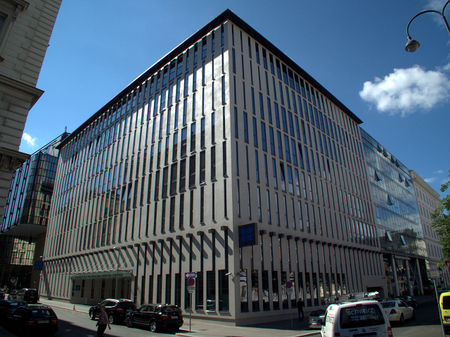Cartel
When firms agree to collude, that is they agree to a certain price and quantity for a good or service, they create a cartel. A cartel is a type of oligopoly.[2] As cartels are formed and operate in secret, it is up to the members of the cartel to keep their agreement in tact. The firms must trust each other not to drop their price to undercut the others or increase their output.[3] This is difficult to ensure as firms may have different production costs and therefore require more of the profit to meet their costs. This difference means that there is less control over the market than there would be under a monopoly structure.[4]
Cartels can be legal, illegal, national or international and can emerge in almost any market from the market for steel to the market for cocaine (as an example).[5] The Organization of Petroleum Exporting Countries is one such example of an international cartel. The governments of the OPEC countries agreed to coordinate with petroleum firms (both state owned and private) in order to manipulate the world wide oil supply and therefore the price of oil. OPEC has trouble cooperating, the 12 countries are not always able to coordinate policies to ensure their control over the market due to a large number of political and economic factors.[6] Often times anti-trust legislation is put into place by governments to break up these cartels.
For an excellent example please see OPEC.
For Further Reading
- Collusion
- Oligopoly
- OPEC
- Anti-trust legislation
- Or explore a random page
References
- ↑ By DALIBRI - Own work, CC BY-SA 3.0, [Online], Available: https://commons.wikimedia.org/w/index.php?curid=20982621.
- ↑ A. Goolsbee, S. Levitt and C. Syverson. ‘’Microeconomics’’. New York: Worth Publishers, 2013, pp. 643.
- ↑ J.Black, N. Hashimzade, and G. Myles. (2009) "Cartel." [Online], Available: http://www.oxfordreference.com/view/10.1093/acref/9780199237043.001.0001/acref-9780199237043-e-363?rskey=cp2GJC&result=1, 2009 [Aug 14, 2016]
- ↑ "A Dictionary of Economics" entry: cartel, published Oxford University Press, 2013. Edited by John Black, Nigar Hashimzade, and Gareth Myles Online version accessed [August 17th, 2017].
- ↑ J.Black, N. Hashimzade, and G. Myles. (2009) "International Cartel." [Online], Available: http://www.oxfordreference.com/view/10.1093/acref/9780199237043.001.0001/acref-9780199237043-e-3718?rskey=cp2GJC&result=2, 2009 [Aug 14, 2016]
- ↑ A. Goolsbee, S. Levitt and C. Syverson. ‘’Microeconomics’’. pp. 445-446.


